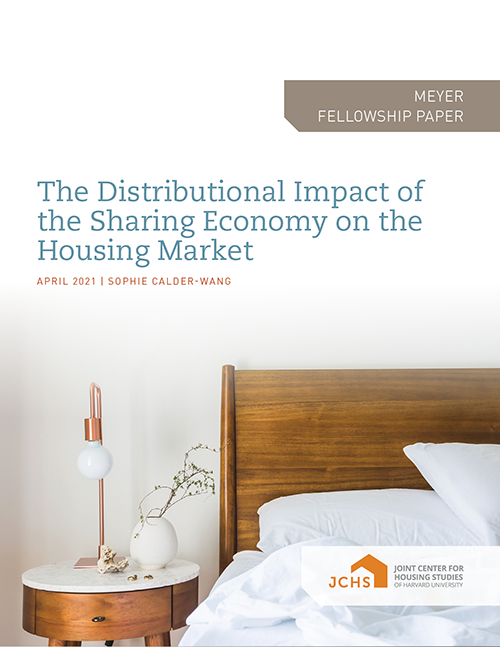The Distributional Impact of the Sharing Economy on the Housing Market
What is the impact of the sharing economy, pioneered by companies such as Airbnb, on the housing market? In this paper, Sophie Calder-Wang estimates the welfare and distributional impact of Airbnb on the residents of New York City. She develops a model of an integrated housing market, in which a landlord can offer a housing unit for rent either on the traditional long-term rental market or on the newly available short-term rental market. By estimating a structural model of residential choice and linking it to detailed Airbnb usage data, she estimates the effect of such reallocation on the equilibrium rents across different housing types and demographic groups. In addition, to evaluate the gains from direct home-sharing, she estimates a supply system featuring heterogeneous costs. Overall, renters in New York City suffer a loss of $178mm per annum, as the losses from the rent channel dominate the gains from the host channel. She finds that the increased rent burden falls most heavily on high-income, educated, and white renters because they prefer housing and location amenities that are most desirable to tourists. Moreover, there is a divergence between the median and the tail, where a few enterprising low-income households obtain substantial gains from home-sharing. Thus, this paper delivers a nuanced characterization of the winners and losers of the sharing economy, and provides a framework for understanding the consequences of regulating such technological innovations.

